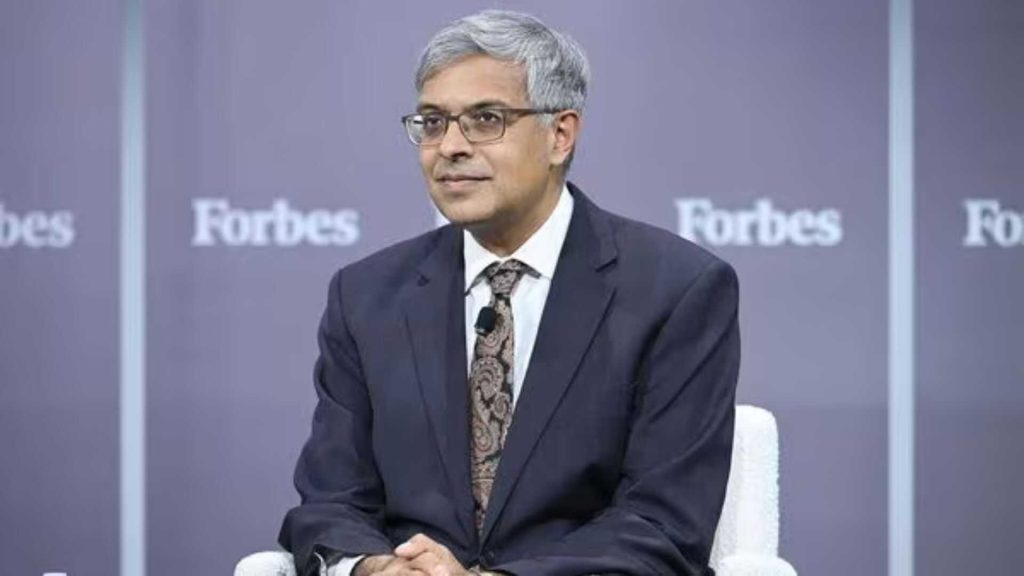US President-elect Donald Trump has appointed prominent COVID lockdown sceptic Jay Bhattacharya as the next director of the National Institutes of Health (NIH), the world’s largest government-funded biomedical research organisation.
Trump announced that Bhattacharya, a physician and economist educated at Stanford University, would lead the NIH. Bhattacharya gained widespread attention during the pandemic as a leading proponent of the controversial Great Barrington Declaration, an open letter opposing widespread lockdowns.
Bhattacharya’s nomination completes Trump’s top public health team as he prepares to assume office on 20 January.
Earlier this month, Trump revealed his intention to appoint former rival Robert Kennedy Jr. as the head of the US Department of Health and Human Services.

Kennedy’s scepticism towards vaccines has caused concern within the medical community, although his advocacy for stricter regulations on food ingredients has been widely praised.
In a statement, Trump said Bhattacharya would work alongside Kennedy to “restore the NIH to a Gold Standard of Medical Research as they examine the underlying causes of, and solutions to, America’s biggest health challenges, including our crisis of chronic illness and disease.”
Bhattacharya expressed his gratitude on X (formerly Twitter), saying he was “humbled” by the appointment.
“We will reform American scientific institutions so that they are worthy of trust again and will deploy the fruits of excellent science to make America healthy again!” he wrote.
On Tuesday, the president-elect also nominated Jim O’Neill, a former federal health official and close ally of conservative donor Peter Thiel, as deputy secretary of the health department.
However, it is Bhattacharya who is more widely known, having challenged the public health establishment’s response to the COVID outbreak four years ago.
In October 2020, Bhattacharya co-authored the Great Barrington Declaration, an open letter advocating an alternative to lockdowns. The declaration called for prioritising the protection of vulnerable groups, such as the elderly, rather than implementing widespread restrictions.
Bhattacharya has remained a vocal critic of how Anthony Fauci, former director of the US National Institute of Allergy and Infectious Diseases (a division of NIH), handled the pandemic.
At the time, then-NIH director Francis Collins dismissed the Great Barrington Declaration as dangerous, describing its authors as “fringe experts” and rejecting its recommendations, which were made before COVID vaccines became available.
Bhattacharya is not the only Trump nominee who has criticised the response of US public health agencies during the pandemic.
Trump has also chosen Marty Makary, a Johns Hopkins surgeon who opposed the COVID-19 vaccine mandate, to head the Food and Drug Administration (FDA).
Dave Weldon, a physician and former Republican congressman who has also raised concerns about vaccine safety, has been nominated to lead the Centres for Disease Control and Prevention (CDC).
Kennedy and O’Neill’s health department would oversee the agencies led by Makary, Weldon, and Bhattacharya, although all five appointees must first be confirmed by the Senate.
Last week, Trump also named television personality Dr Mehmet Oz as the nominee for administrator of the Centres for Medicare and Medicaid Services.
While Trump’s appointments to US public health agencies have generally been welcomed by his allies, not all have been well received by conservatives.
He has also nominated Dr Janette Nesheiwat, a Fox News medical contributor, as the next Surgeon General.
However, her previous remarks opposing abortion restrictions and supporting the masking of schoolchildren during the pandemic have provoked criticism from some Trump supporters.


